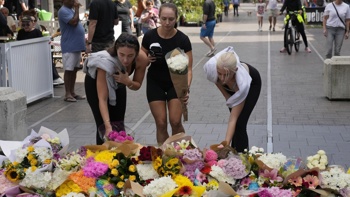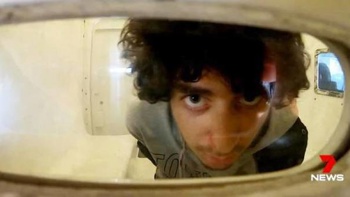
Just eight teachers have arrived in New Zealand under a border exception class that was meant to get 300 teachers into the country - seven months after it was announced.
Employers say it's too costly and confusing to get overseas teachers through the approval process, even before the new recruits have to battle for an MIQ spot.
Meanwhile more than 800 teaching vacancies are being advertised across the country, with half of them in the early learning sector, which has a dire staffing shortage.
A teacher's union says most services can't afford to recruit from overseas through the border exception process.
But the Ministry of Education says it's doing everything it can to make the process simple and transparent and to help people through their applications.
Minister of Education Chris Hipkins unveiled the border scheme seven months ago, saying it would let 300 overseas qualified teachers and their families come to New Zealand under a critical purpose visa.
It was initially aimed at low decile schools and subject shortages like science and technology but has been expanded to all deciles and subjects after takeup was not as high as expected.
Under the border scheme, eligible schools and early learning centres must apply to the Ministry of Education to get approval for the overseas teachers they want to recruit.
All the usual certifications like Teaching Council approvals must be complete before they are handed over to Immigration NZ, which decides whether to issue a visa. Once that visa is issued, the person can apply for the MIQ lottery.
But as of January 31 the ministry only had 156 applications for the 300 places, with just over half from early learning centres and the rest from schools.
Of those, 61 teachers had had a visa approved and the rest were still being processed, according to the ministry. Eight teachers had arrived in New Zealand and 11 had booked an MIQ slot - the rest hadn't yet obtained MIQ vouchers.
Stephanie Greathead, Immigration NZ's acting general manager of border and visa operations, said as of Friday the Ministry of Education had nominated 97 workers out of the 300 to INZ.
"INZ has received 82 requests for education workers and invited 81 people to apply for a visa (one person is still being processed). Of those that have been invited to apply for a visa, INZ has received 69 visa applications and to date; 61 have been approved and the remaining eight are still being processed."
No MIQ spots were set aside for the education sector so people must apply as normal, Greathead said.
Entry to New Zealand remained strictly controlled to help prevent the spread of Covid-19 and protect the health of people already in the country.
'Slow and laborious': Employers struggling with border scheme
New Shoots director Michelle Pratt employs 455 staff in her early learning centres, and in October applied to get three early childhood teachers into New Zealand through the scheme.
She said the Ministry of Education had been "incredible" and handled everything very smoothly, with one teacher approved in November and one in January, while the third was still waiting. But none had visas yet, or an MIQ slot.
She was frustrated the process wasn't more streamlined. New Shoots has spent hundreds of hours and thousands of dollars applying, which Pratt said would be "impossible" for a smaller provider.
Liam Rutherford, president of the NZEI union, which represents teachers in the early learning and primary sectors, said the costs involved in the scheme were prohibitive.
He was not surprised that pickup had been "woeful".
"We're hearing repeatedly in the early childhood sector that people are finding the fast track, the 300 spots, are not an adequate solution," he said.
Non-profits in particular couldn't afford to recruit from overseas.
Covid had not caused the teaching shortage in early learning but had made it worse, Rutherford said.
The Herald yesterday found 819 teaching job ads in the Education Gazette. Vacancies will be higher as some ads were for more than one job.
Nearly half of listings - 401 - were for early learning. The other 418 were for teaching vacancies in schools - up from just 271 this time last year.
Secondary schools accounted for 230 listings, 155 were for primary schools, and 33 for composite or area schools and resource teachers.
Macleans College principal Steve Hargreaves said "an awful lot of vacancies" were listed in the Gazette.
"I think schools across the board have got a problem recruiting staff."
Border issues and the vaccine mandate appeared to be adding to hiring pressures, said Hargreaves, who is head of the Auckland Secondary Schools Principals' Association.
He was still hiring teachers yesterday, a week after students returned, and still had some gaps.
"I've never been in this position recruiting teachers at the stage of the year."
But Hargreaves said the school had not bothered to attempt to recruit from overseas for this year, after hearing from a recruitment consultancy how hard it was to apply through the border exception scheme.
Rangitoto College principal Patrick Gale said he had found the border exception process "slow and laborious" and he had expressed frustration to the Ministry last year about a cap of two teachers per school.
That cap has since been lifted and the eligibility criteria expanded on January 19.
Rangitoto now had one science and two maths teachers on the verge of getting visas. But Gale said the trio would still need to enter the MIQ lottery, which was "an absolute farce".
"We've got real concerns that the Government has presented a solution to the public, which is not actually workable, given the MIQ barrier, which is preventing these teachers coming in."
Anna Welanyk, leader of the ministry's education workforce, said the ministry had been trying to make sure schools, kura and ECEs with the greatest need for teachers could recruit through the scheme.
The ministry had made every effort to make the process as transparent and simple as possible and to work fast - once employers submitted the required information, "a typical application is granted preliminary approved by the ministry extremely quickly, normally in around 48 hours", Welanyk said.
A small case management team was in regular contact with employers and could advise on navigating the process, which the sector had found very useful. Employers could also apply for a $5500 grant for recruitment costs after a teacher arrived in New Zealand.
Asked why the process had not been made more streamlined - such as simplifying teacher registration requirements, or allocating MIQ spots in the advance - Welanyk said teacher registration rules applied to everyone and gave the public confidence in the quality of overseas trained teachers.
It would also not be appropriate to allocate separate MIQ spots for the teachers, she said.
"The use of a visa is not time-dependent so it isn't appropriate to connect it with a MIQ voucher, which is very time specific to enable effective management of the use of MIQ rooms."
Take your Radio, Podcasts and Music with you









